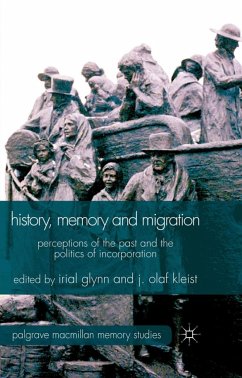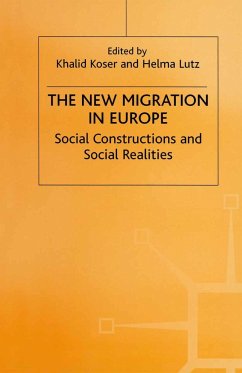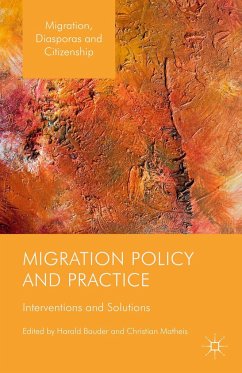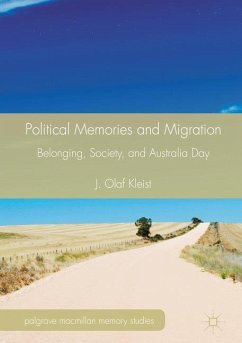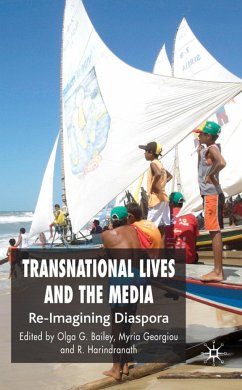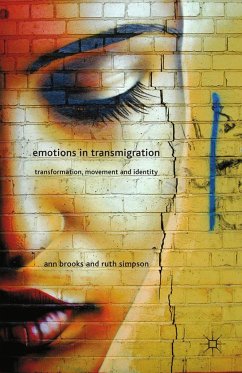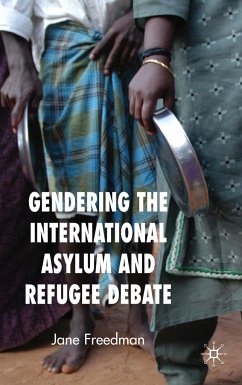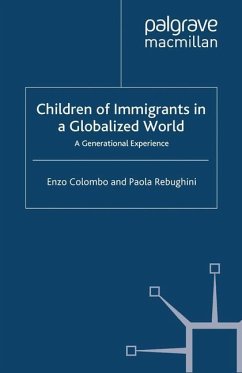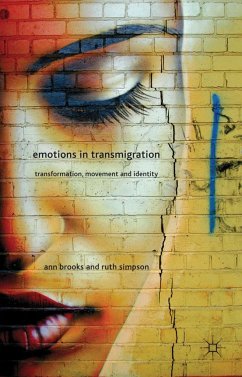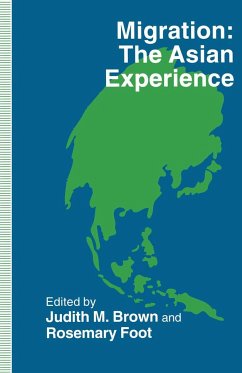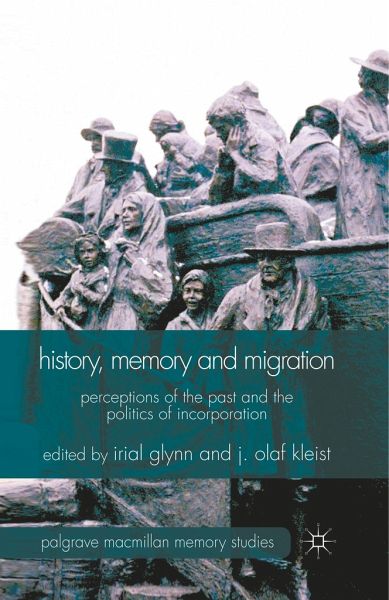
Irial Glynn
Broschiertes Buch
History, Memory and Migration
Perceptions of the Past and the Politics of Incorporation
Herausgegeben: Kleist, J.
Versandkostenfrei!
Versandfertig in 6-10 Tagen
Weitere Ausgaben:

PAYBACK Punkte
19 °P sammeln!





By conversing with the main bodies of relevant literature from Migration Studies and Memory Studies, this overview highlights how analysing memories can contribute to a better understanding of the complexities of migrant incorporation. The chapters consider international case studies from Europe, North America, Australia, Asia and the Middle East.
MICHÈLE BAUSSANT Researcher in anthropology at the CNRS, France MARY J. HICKMAN Professor of Irish Studies and Sociology at London Metropolitan University, UK HANS LEAMAN Ph.D. candidate in History and Renaissance Studies at Yale University, USA KELVIN E.Y. LOW Assistant Professor of Sociology at the National University of Singapore KEVIN MYERS Senior Lecturer in Social History and Education at the University of Birmingham, UK JOSEFINE RAASCH Currently at the Institute for Social Research at Swinburne University of Technology in Australia MORIEL RAM Ph.D student in the department of Politics and Government at Ben-Gurion University, Israel MACHTELD VENKEN Senior postdoctoral researcher and Lise Meitner Fellow at the Ludwig Boltzmann Institute for European History and the Public Sphere in Vienna JAY WINTER Charles J. Stille Professor of History, Yale University, USA HAIM YACOBI Senior Lecturer at the Department of Politics and Government at Ben Gurion University and a Marie-Curie fellowat Cambridge University, UK.
Produktdetails
- Palgrave Macmillan Memory Studies
- Verlag: Palgrave Macmillan / Palgrave Macmillan UK / Springer Palgrave Macmillan
- Artikelnr. des Verlages: 978-1-349-33283-0
- 1st ed. 2012
- Seitenzahl: 268
- Erscheinungstermin: 1. Januar 2012
- Englisch
- Abmessung: 216mm x 140mm x 15mm
- Gewicht: 342g
- ISBN-13: 9781349332830
- ISBN-10: 1349332836
- Artikelnr.: 45079869
Herstellerkennzeichnung
Springer-Verlag GmbH
Tiergartenstr. 17
69121 Heidelberg
ProductSafety@springernature.com
"This is an exciting new collection which looks at the various and shifting interplays between memory and migration. It is certainly a welcome addition to historiography in this field." - Kathy Burrell, De Montfort University, UK
"In a world where multiculturalism and cosmopolitanism have come under fire of neo-nationalist and anti-immigrant rhetorics this volume at the crossroad of memory and migration studies is most timely. Its innovative research agenda opens a fresh and much needed impulse that forces scholars to rethink the role of memory (and memory studies) in current scholarly and political discussions about the role of migrants and migration in nation states, and more generally in human societies." - Leo Lucassen, professor of Social History, University of Leiden.
"A worthy contribution to the area of migration studies that can serve to widen scholarship in the field and inspire readers to take into account the relevance of memory when researching the livesof migrants." - Journal of Intercultural Studies 34:4 (2013)
"In a world where multiculturalism and cosmopolitanism have come under fire of neo-nationalist and anti-immigrant rhetorics this volume at the crossroad of memory and migration studies is most timely. Its innovative research agenda opens a fresh and much needed impulse that forces scholars to rethink the role of memory (and memory studies) in current scholarly and political discussions about the role of migrants and migration in nation states, and more generally in human societies." - Leo Lucassen, professor of Social History, University of Leiden.
"A worthy contribution to the area of migration studies that can serve to widen scholarship in the field and inspire readers to take into account the relevance of memory when researching the livesof migrants." - Journal of Intercultural Studies 34:4 (2013)
Für dieses Produkt wurde noch keine Bewertung abgegeben. Wir würden uns sehr freuen, wenn du die erste Bewertung schreibst!
Eine Bewertung schreiben
Eine Bewertung schreiben
Andere Kunden interessierten sich für


